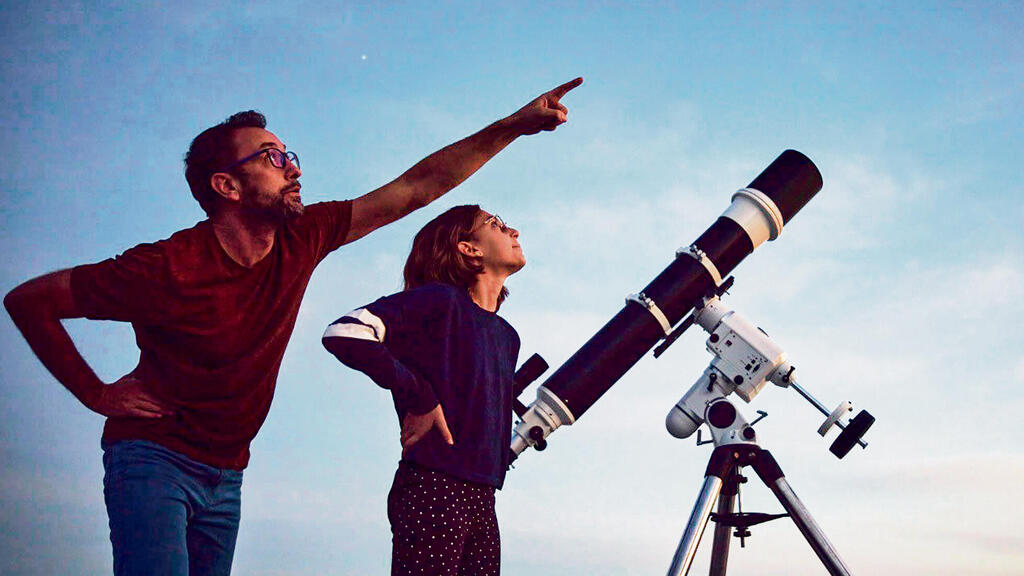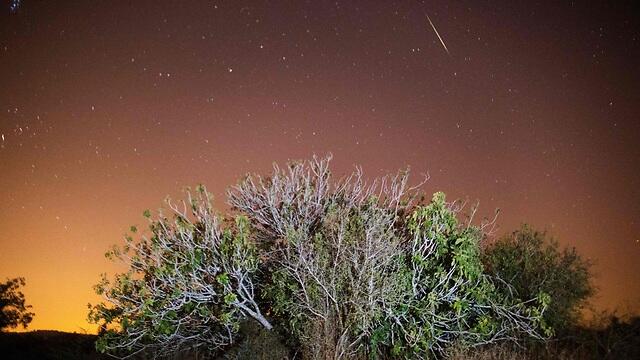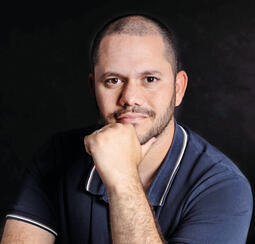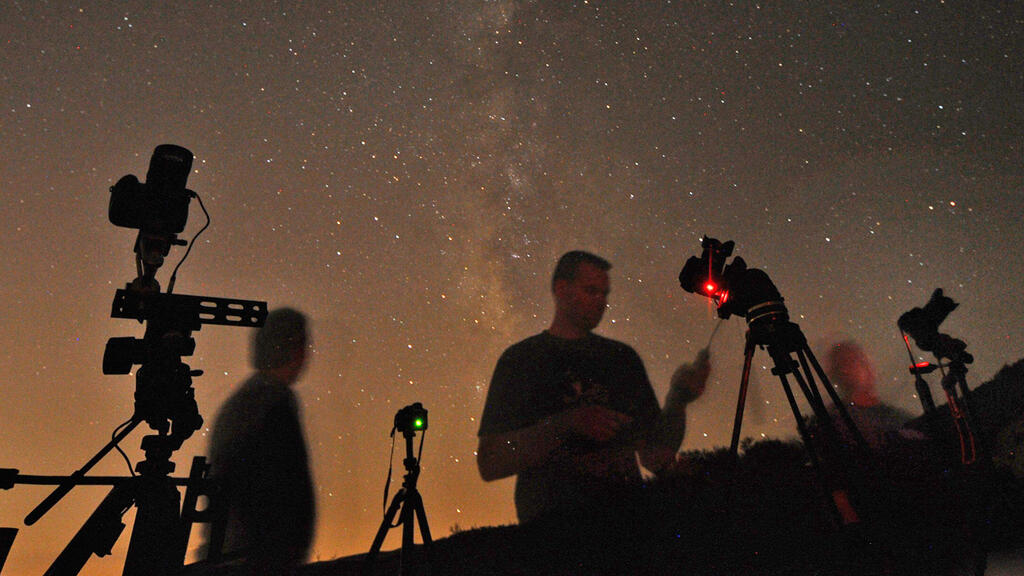Getting your Trinity Audio player ready...
Israelis are increasingly pointing their telescopes toward the night sky, following a stargazing trend that increased during the COVID-19 pandemic.
More stories:
Philip Bonneau, an 81-year-old architect is an avid stargazer who is losing his eyesight but still finds ways to pursue his beloved hobby. "Stars simply intrigue me," he says from his home in the desert town of Mitzpe Ramon. "When I was young, someone asked me what I’d want to buy if I had an endless amount of money, and I spontaneously answered, 'A telescope.' Since then, I’ve been hooked.”
Starstruck
“I became interested in stars as a child growing up in France. I had to give a lecture in school, and the subject I chose was astronomy. After we moved to Israel, my partner and I traveled around the country and when we came to Mitzpe Ramon, I told her then that that is a place where I could always gaze at the stars, and after we moved here to the desert six years ago, that is what I've been doing," he says. "I’ve never had a lot of money, but stargazing is free. and as I told my son who asked me why I was not a millionaire, I have a million stars over my head so I am in fact one."
Bonneau said he is compelled to buy bigger and better telescopes each time, "it's an addiction, he says. "Every night, I go out alone. In recent years, when my eyesight started fading, I shifted to photography, and for the past four years, I've been photographing stars. The advantage of photography is that you can see color, which isn’t seen even with the world’s largest telescope,” he says.
“My children and grandchildren join me but they don't get as excited as I do because it's probably something you're born with. In recent years, I realized that there's a community of stargazers in Israel and suddenly I felt a sense of belonging and that my passion was shared by other people as well."
Kfir Veler, 34, from Ashdod is one man who shares the same passion but had turned star-chasing into a profession. "I've carried a camera with me since I was a child," he says. "It started as a hobby and I used a camera my late father bought, but it stuck with me. After being discharged from my military service, I began taking it more seriously and in 2017 I encountered the stargazing communities that have grown all around Israel. I realized that photography could be combined with stargazing," he said adding that it became a love story and prompted him to study the subject and he now offers workshops in astrophotography.
"When I was searching for more information, I found that it was only available abroad, so I developed an information hub for communities in Israel. After the COVID-19 pandemic, it gained momentum because people were confined to their homes, and their desire to go outside and rediscover nature grew, among them those who now chase after stars," he says.
Israel's many stargazers
“Today, there are many stargazers all over the country, and the community keeps growing. On Friday, the Perseid meteor shower will occur and many families will travel south to observe it. Like any hobby, it's something that once you start, you can't stop,” he says.
Veler says he is approached by many people of all ages and ethnicities, who want to break out of their routine and experience nature. "This hobby can take you to a secluded place, with no cell reception, but where you can witness these special phenomena and have unforgettable experiences. Life in Israel is so stressful, and I need this escapism to balance the stress. It allows me to breathe, fills me with energy, and brings a smile to my face.”
Veler says he has witnessed the star-gazing community double in size from around 4,000 to 8,000 people in just four years. He says members share information and pictures and write reviews
“We’ve been working with the Nature and Parks Authority for years, offering photography workshops, including smartphone photography. When we go out chasing the stars, we sometimes look like a small army. To see the stars well you have to be away from populated areas and need the moon to be hidden.
Stargazing events take place all over the Negev Desert but visitors must be aware of areas used by the military for training. The weather conditions are also critical because the desert gets very cold at night, even in the summer and sandstorms are common.
“You have to check on all of these factors before heading out," Veler says. A mistake many make is going to a place they've heard about without knowing the way, then arriving late at night and getting lost or pitching their tent where it is not allowed. It's important to leave early when there’s still daylight and to make sure to be appropriately dressed and have food and water with you. But the most important rule is not to use any light sources, even from a mobile phone, because it significantly affects the ability to see the stars."





